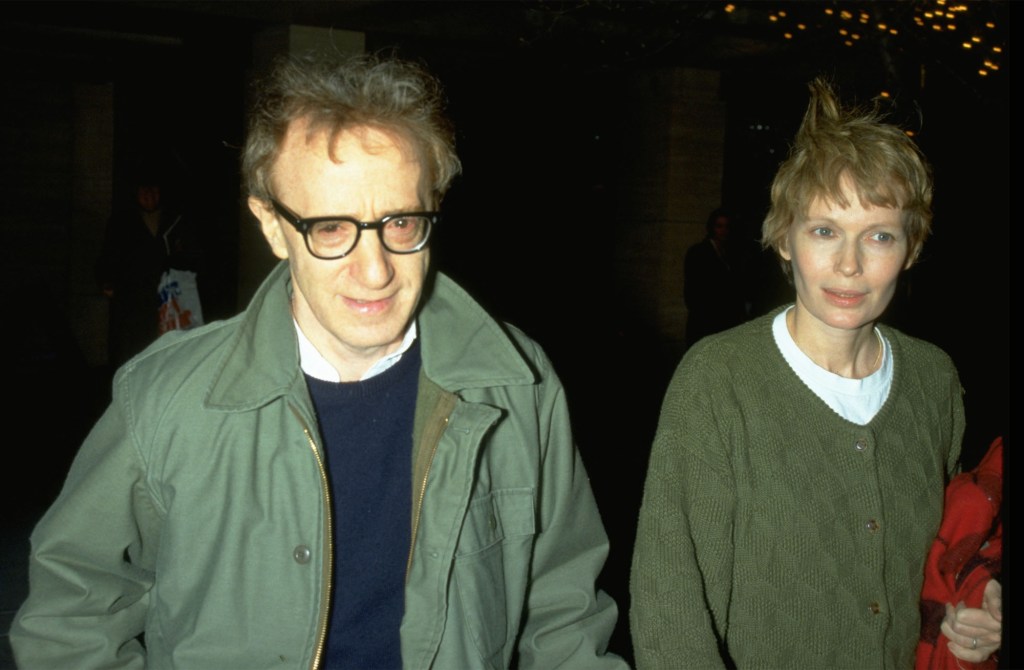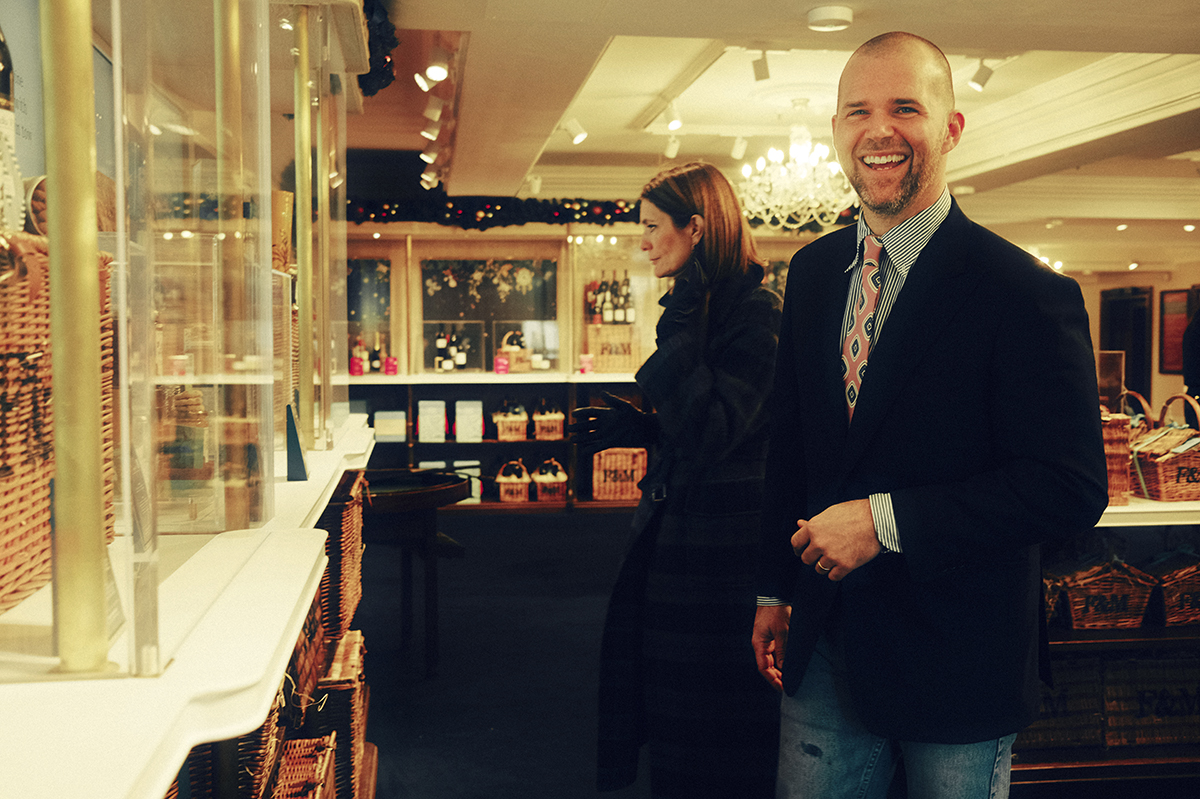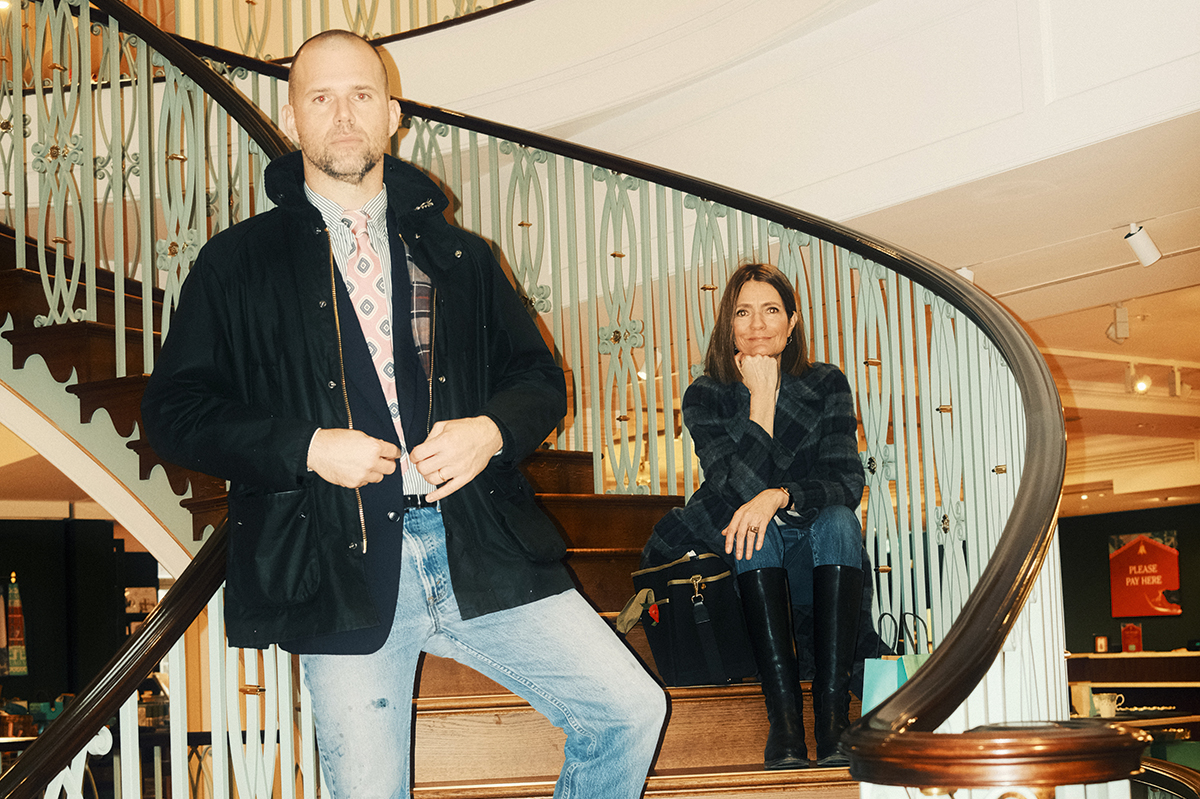We are told that we have lost the ability to hold two thoughts in our minds at the same time. The truth about the explosion of America’s favourite blended family, the Mia Farrow ménage, requires us to recognise several thoughts at once. They boil down to three thoughts. That’s still a lot to think about at the same time, but at least all three are, unlike Mia Farrow and Woody Allen, mutually compatible:
Mia Farrow was not a fit parent. Woody Allen is a creep. Ronan Farrow is a hypocrite.
Another truism which isn’t entirely true holds that people who believe everything end up believing in nothing. This is not the case here. The Farrow-Allen drama has turned us all into voyeurs, rooting for Team Woody and Team Mia, and thus participating in that ‘willing suspension of disbelief’ that Coleridge identified as the premise for watching a play or reading a poem. Allen and Farrow, in their monstrous vanity, corrupted their professional talents, and turned themselves into the show. Inevitably, the pretence and egotism blew back into the dressing room, because when children are dragooned into this kind of performance, they stay in character forever.
Allen and Farrow will continue to play their roles in their amateur Ibsen production till their last breaths, and with unflinching professional conviction, because each supports the other in sustaining the drama and retaining top billing. Second-rate entertainers on film, they are now third-rate reality stars, spinning the plates of their fading Boomer celebrity. That is their comedy, and ours. Their children will continue to play their roles too, because they never knew anything else and so cannot do otherwise. That is their tragedy, and our complicity in it.
We could believe either Allen’s version or Farrow’s, but that would get us no closer to the truth, because neither is trustworthy and both are proven fantasists. Long before they turned on each other, they were collaborators, professional participants in a lucrative circus of fame and falsity. They were wealthy celebrities, admired for their ability to make fiction seem real. Frankly, I wouldn’t trust either of them to tell me the time of day.
I do, however, believe the children. More precisely, I believe that the children’s misery proves that there were no adults in the room, and that, when they were there, they weren’t behaving as adults should.
The attrition rate among Farrow’s children speaks for itself, and so does its distribution. All four of Farrow’s birth children are alive and well. Three of her ten adopted children are dead. Tam, who was blind and adopted from Vietnam, died in 2000, age 19; the official cause of death is heart failure, but her younger brother Moses Farrow recently said that it was suicide by overdose, after a ‘final fight with Mia’. Lark, also adopted from Vietnam, struggled with addiction and died from complications of AIDS in 2008, age 35. Thaddeus, who was paralysed by polio and was adopted from India, died by suicide at 27 in 2016.
Moses Farrow’s account, published in May, and Soon-Yi Previn’s account, published last week, have, if not the ring of truth, then at least a strong and consistent resonance of truthiness. It seems all too plausible that Farrow would have favoured her biological children over the adoptees that she cast in supporting roles that confirmed her saintliness. It seems all too plausible that Allen, a man with his head firmly jammed into his own fundament, would not have assisted or intervened.
The public statements of Ronan Farrow, meanwhile, have a strong and consistent resonance of falsity. He is the prime beneficiary of the sick star system of the Farrow family — down to the suggestion, also all too plausible, that he is really the son of Frank Sinatra. Down, in fact, to his inheritance of Farrow’s role as celebrity ‘activist’, a role that he plays with the desperate conviction of someone groomed for it from childhood.
Ronan Farrow has done good work in exposing abusive and powerful men for the New Yorker. That work involves substantiating tip-offs and personal testimony. But when his sister and brother, Soon-Yi Previn and Moses Farrow, expose an abusive and powerful woman with plausible testimony, Ronan Farrow tries to shut them down. He attacks New York magazine’s interview with Soon-Yi Previn as ‘shameful’. He calls it ‘a hit job’ on his ‘devoted mom’. As a journalist, he professes to be shocked, just ‘shocked by lack of care for the facts’ in Soon-Yi Previn’s account.
Ronan Farrow is using his celebrity and his media power to stifle plausible accusations of abuse. This make him a hypocrite. Quite possibly without knowing it, in the way of an actor playing a part intuitively. Quite possibly without wanting to know, in the way of the favoured children of abusive and violent parents — forever aware of the value of being favored, and forever afraid that favor will be withdrawn. Either way, Ronan Farrow should have some ‘care for the facts’.
So should we. Unlike the children of abusive and manipulative parents, we have a choice whether we play our assigned role in this saga. We can choose to suspend our disbelief, or we can choose to take some care for the facts.
Three of Ronan Farrow’s adoptive siblings seemingly died by various forms of self-harm. Once might be unfortunate. Twice looks like carelessness. What does thrice look like to us, the audience? What kind of script is being played out here?
Two of Ronan Farrow’s siblings have offered plausible testimony that Mia Farrow was not unanimously ‘devoted’ to her children, but ran a domestic star system that put Ronan Farrow on top.
And as Moses Farrow has pointed out, the patterns of alcoholism, adultery, suicide and sexual abuse in Mia Farrow’s immediate family make his and Soon-Yi Previn’s account all too plausible. Much more plausible, in fact, than the media spin offered by the golden boy in this tarnished and squalid family drama.

























